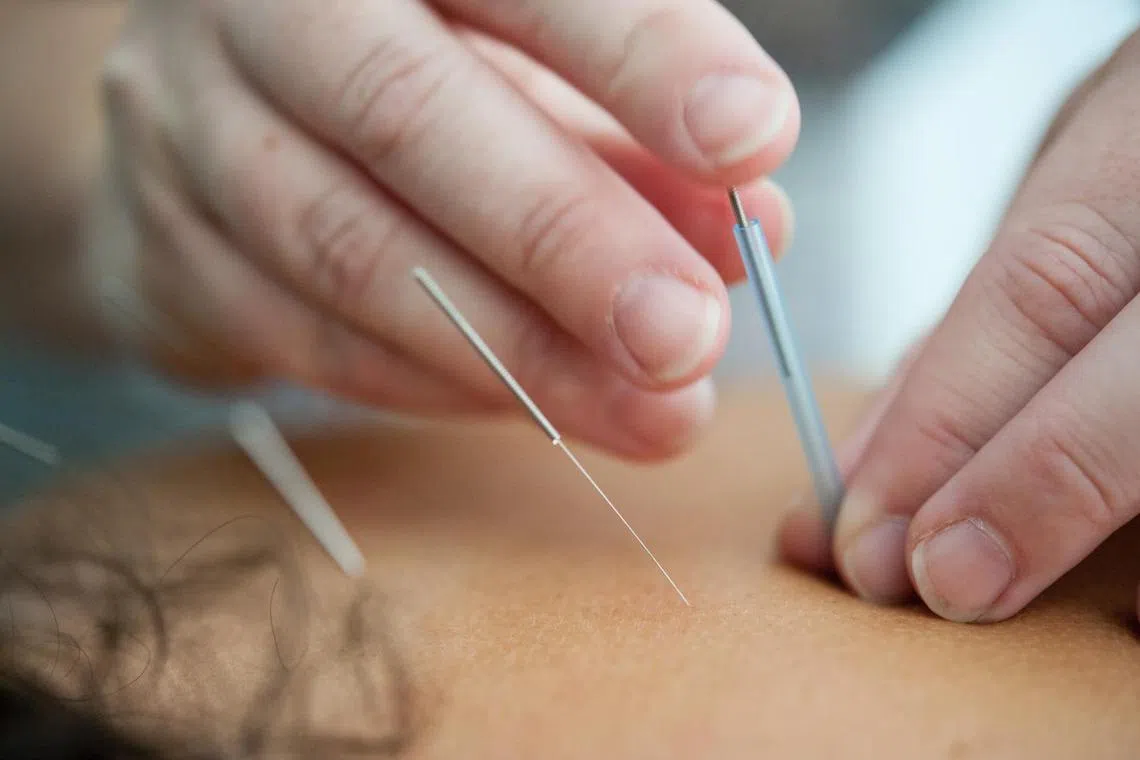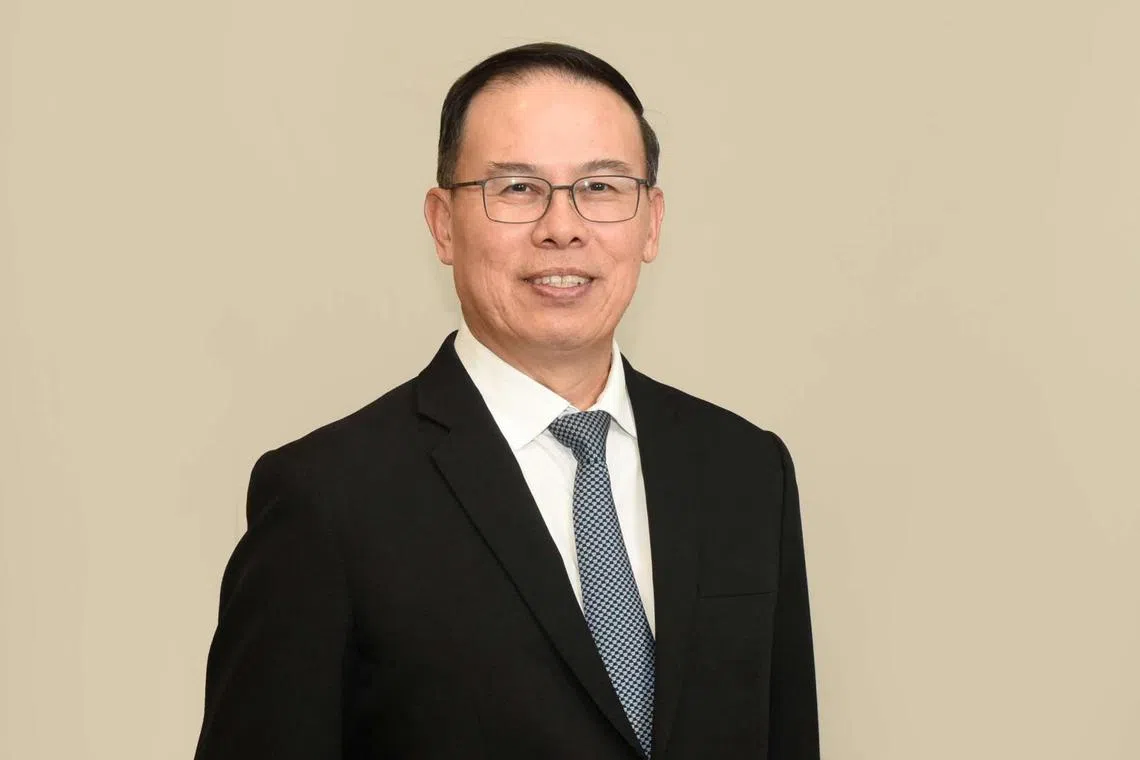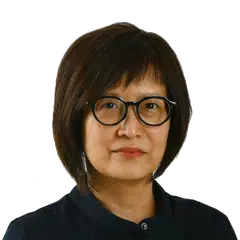New TCM board chairman prioritises safety, efficacy of treatments, best practices
Sign up now: Get ST's newsletters delivered to your inbox

Interest in the use of TCM remedies has been thrust to the fore, as Singapore embarks on a Healthier SG journey to help residents take greater charge of their health.
PHOTO: UNSPLASH
Follow topic:
SINGAPORE - People looking for health solutions may ponder over whether traditional Chinese medicine (TCM) remedies are effective and safe. Can they, for example, rely on cupping and herbal concoctions?
Dr Teo Ho Pin, the newly appointed chairman of the TCM Practitioners Board (TCMPB), wants clear processes put in place to determine the safety of such traditional remedies and research to play a key role in proving their efficacy.
He also wants to focus on improving the professionalism of TCM practitioners and said the board may firm up improved guidelines by early 2024.
TCMPB, a statutory board under the Ministry of Health (MOH), is in the midst of a major review of the Ethical Code and Ethical Guidelines for TCM practitioners, which was first released in 2006.
Interest in the use of TCM remedies in preventive care has been thrust to the fore
Health Minister Ong Ye Kung said last year that TCM is very strong in preventive care and the Government is looking at how it can complement Healthier SG, though TCM will not and cannot be a substitute for Western medicine.
Dr Teo, who has over 30 years of experience in township management in Singapore and served as Mayor of North West District between 2001 and 2020, said the TCM board will look into the possibility of setting up a quality assurance framework to ensure the safety of TCM practices and medicines.
“We want people to be confident because it’s safe to use certain approved TCM practices, certain approved or tested science-based TCM medicines,” he added. “If you can build the confidence, then I think TCM can play a bigger role in our whole healthcare ecosystem.”
It is not just about the consumers, as ensuring safe practices also benefits the practitioners and lessens their risk of being sued, said Dr Teo in his first media interview after taking over the post on March 1 from Mrs Yu-Foo Yee Shoon. She helmed the board for nine years.
Research is another area he wants to see more of, given the scant evidence behind many of the remedies. The use of evidence-based medicine to objectively prove the efficacy of TCM is also something that Mr Ong has spoken about.
MOH has approved $8 million in TCM research grants since 2016, of which $5 million has been awarded.
“We want to first support Healthier SG, in terms of preventive healthcare, so if we can do things to help people to prevent them from getting diabetes, high blood cholesterol, that will be a big plus to the country,” said Dr Teo.
When asked how TCM can play a part in Healthier SG, he said one way is to identify the platforms where the Chinese community congregates, in order to reach out to them to educate them on TCM care. For instance, qigong groups can be scaled up but such activities will have to be run by the community, and not the TCM board or MOH.

Dr Teo Ho Pin, the newly appointed chairman of the TCM Practitioners Board, also wants to support Healthier SG, in terms of preventive healthcare.
PHOTO: TCMPB
TCM practitioners can also work in tandem with doctors trained in Western medicine in providing preventive care, he said.
With the impending release of revised guidelines for the industry, there will be clear protocols for TCM therapies and for TCM practitioners to hold telehealth consultations for follow-up sessions, among other changes.
“We want to be as close to the best practices of the Western medical doctors as possible,” said Dr Teo.
He added that fees and charges must be displayed upfront so that consumers know what they are buying, for instance.
TCM practitioners here have to be registered with TCMPB. As at Dec 31 last year, there were 3,436, up from 3,319 a year ago and 3,271 in 2020.
Those who wish to practise as a TCM practitioner in Singapore must have suitable academic qualification from certain institutions here or in China, some practice experience and pass a registration examination.
Dr Teo said around 70 per cent of the registered practitioners are active, working in the private sector, charitable organisations or the public sector.
Over the past five years, Singapore has had a net rise of 60 TCM practitioners a year but the rapidly ageing population means there is always a need for more practitioners, he said.
But as the salaries in the TCM sector are relatively low compared with other corporate jobs, many practitioners have dropped out of the industry, said TCM physician Leong Weizhen from Oriental Remedies, a chain of four TCM clinics here.
There is a need for greater recognition of TCM physicians and one way is to allow for career progression through recognised titles like senior physician or senior consultant physician, she added.
If MediSave and insurance can be used for TCM services at certified practitioners, these clinics would be able to pass the benefits of a potentially wider pool of customers to staff in order to retain them, she said.


